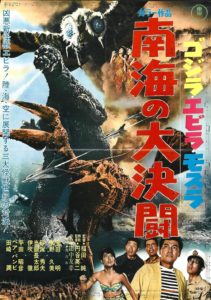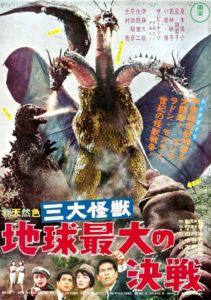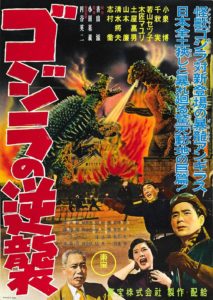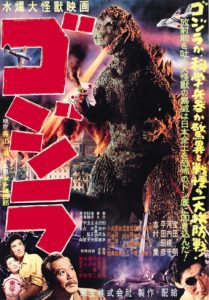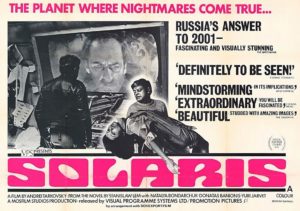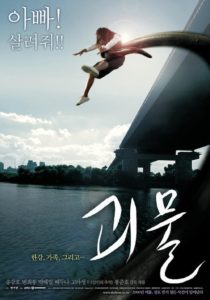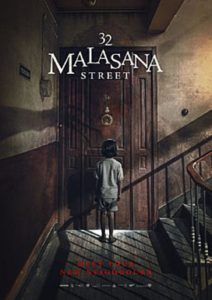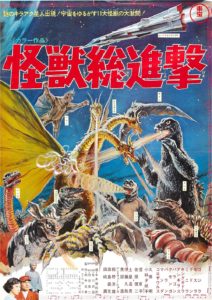 Okay. Nine movies. I have watched nine movies, mostly to delve into the mystery behind how many Godszilla existed, to which the answer is, for now, still two. But at some point I also just wanted to finish. Skipping seven movies like I should have done is whatever. But skipping two movies after I’ve already seen five of them? (And before you ask: yes, it gnaws at me occasionally that I did not go back and watch the original Mothra movie and the original Rodan movie, before those characters were explicitly spun into the Godzillaverse. (Or were they there all along? I don’t know! Which is why it gnaws at me.))
Okay. Nine movies. I have watched nine movies, mostly to delve into the mystery behind how many Godszilla existed, to which the answer is, for now, still two. But at some point I also just wanted to finish. Skipping seven movies like I should have done is whatever. But skipping two movies after I’ve already seen five of them? (And before you ask: yes, it gnaws at me occasionally that I did not go back and watch the original Mothra movie and the original Rodan movie, before those characters were explicitly spun into the Godzillaverse. (Or were they there all along? I don’t know! Which is why it gnaws at me.))
But the point is, I’ve watched those nine movies, which means I’ve made it to Destroy All Monsters, which means I can go back to my horror movie podcast, finally! …yeah, this was a mistake, but nevertheless, here we are.
What has not existed in these movies so far is a timeline. Like, the early movies were obviously in the middle of the atomic age, set for when they came out. Some of the later movies involved deep space travel of the kind that we were not ready for in the mid ’60s, but which then again who knows, what with the advances that would have naturally sprung from having to fight giant monsters birthed or awakened in atomic fires. Irrespective of all that, I can say with certainty that this one is set in the distant future of the year 2000, where all giant monsters are safely collared and contained on Monster Island. There’s a moon base, and in all other apparent ways, we have reached utopia.
Until…
Oops, the monsters are wandering around destroying everything again, and also asteroid aliens want to take control of the world and run it themselves, and hmm could these facts be linked? Mostly, I’m just relieved that they got back to basics, if by basics you mean alien invasions and alien monsters vs earth monsters and a big showdown on Mt. Fuji. Which I very much do. This is I think a good place to drop out for now.
